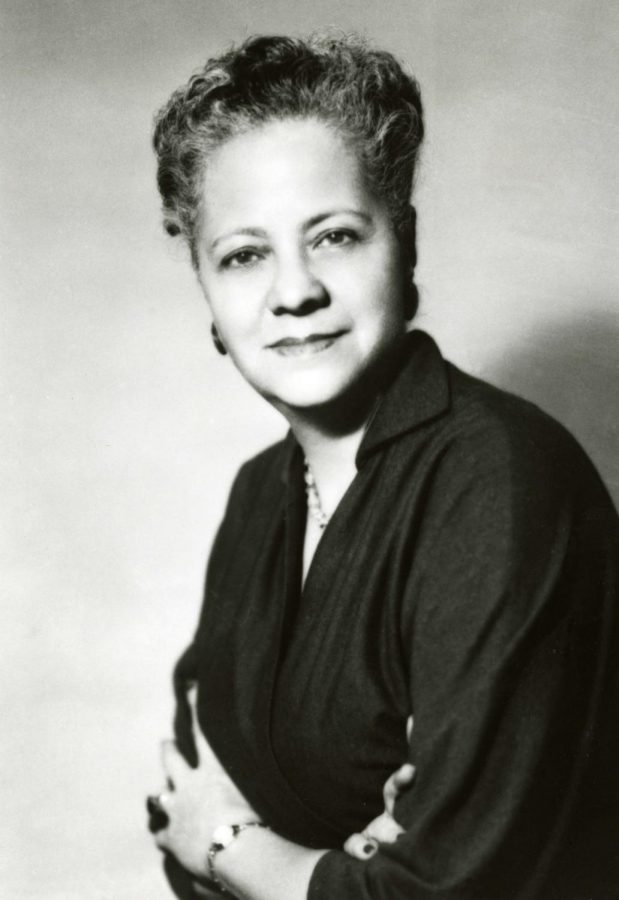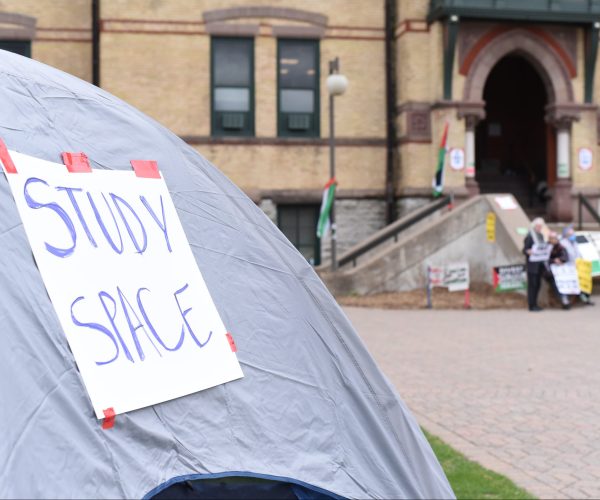Say her name
The Hedgeman Center looks back on Anna A. Hedgeman.
February 27, 2019
Alumna Anna Arnold Hedgeman graduated from Hamline in 1922 with a Bachelor’s of Arts in English with the intention to teach and thus became Hamline’s first black graduate.
“I get emotional thinking about her,” said Carlos Sneed, the Director of the Hedgeman Center for Student Diversity Initiatives and Programs at Hamline University. “This woman walked this campus a hundred years ago. [In] 1918 [she was] the only black person on campus. We can’t be entirely sure, but I would bet, the only person of color on campus – what that must have been like for her.”
On “The forgotten struggle for civil rights in the northern U.S.,” a Minnesota Public Radio show, New York Historian Thomas Sugrue also looked at the discrimination Hedgeman faced during the time period when she wanted to pursue teaching in Minnesota. At the time of her college graduation, public schools would not hire black teachers to preside over white students.
“She was not allowed to teach in the state of Minnesota when she got a degree so she had to go south to Holly Springs, Mississippi,” Sneed said.
After exiting from teaching, Hedgeman went on to recruit over 40,000 people on behalf of the Nation Council of Churches who attended the 1963 march.
Hedgeman was the only woman included in the organization of the 1963 March on Washington for Jobs and Freedom. Hedgeman was 64 when she witnessed Dr. Martin Luther King’s momentous “I Have a Dream” speech.
“She had developed a name for herself as a person who was good at bringing people together,” Sneed said.“[The organizers of the event] brought in Anna Arnold Hedgeman into this group of black clergy men to help develop the March on Washington… She was a strategist, she was behind the scenes.”
She also served as the Executive Director of Harry Truman’s 1948 presidential campaign, and in 1966 co-founded the National Organization for Women as well as a number of other political, educational and other public service accomplishments.

Anna Arnold Hedgeman with W. Averell Harriman and Martin Luther King, Jr.
Sneed spoke about the legacy Hedgeman leaves at Hamline, when he commented on how the Hedgeman Center received its name.
“There was not a building or entity on campus named after a person of color [before the Hedgeman Center],” Sneed said. “One hundred years ago our first black student came to Hamline, fifty years ago our first student of color organization was founded.”
Sugrue echoed Sneed’s sentiment about Hedgman’s relevance today.
“In many respects [she] embodies a trajectory of the civil rights struggle in the north that we need to understand to make sense out of modern American history,” Sugrue said.
Sneed talked about the lack of recognition Hedgeman receives.
“The public people who make important steps and sacrifices are only able to so because of the nameless men and women behind them… The reason we don’t know about her is because of sexism, pure and simple,” Sneed said. “Every chance I get to say her name I will say her name.”






